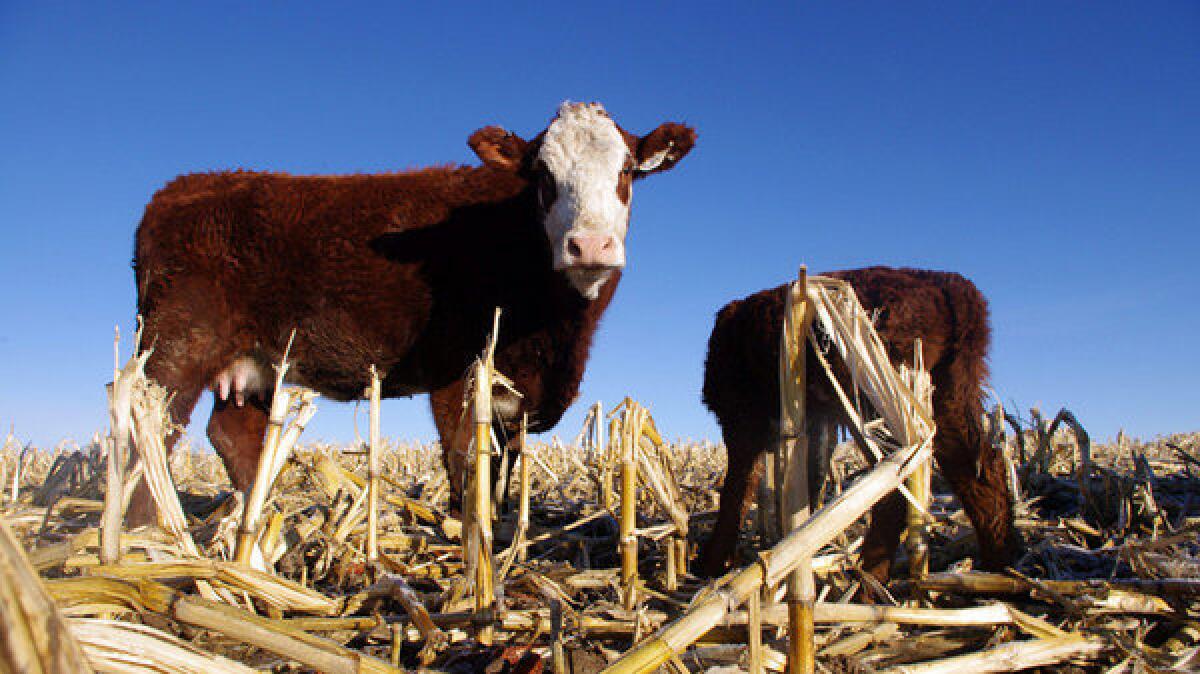Mad cow reemergence may hamper California’s beef, dairy industries

- Share via
The reemergence of mad cow disease, discovered in a California dairy cow, could have major implications for the state’s meat industry, even though officials have said that the human food supply is unaffected.
Bovine spongiform encephalopathy hasn’t been found in U.S. since 2006 and was discovered in only three instances before then. But the disease has dealt a crippling blow to the industry in the past, especially when foreign countries refused to import American beef when mad cow was first uncovered in 2003.
The U.S. Department of Agriculturetests about 40,000 cows a year in its effort to catch the disease.
In California, private and public ranching takes up about 38 million acres, according to the California Cattlemen’s Assn. There are about 620,000 beef cows on 11,800 California ranches. The state also hosts 1.84 million dairy cows, according to information compiled by the California Beef Council.
The sale of cattle and calves was a $1.82-billion industry in California 2008 and fifth among the state’s top 20 commodities. Beef cattle are raised in nearly every California county.
Nationally, California ranks behind Texas, Kansas and Nebraska in total cattle numbers.
Karen Ross, secretary of the California Department of Food and Agriculture, quickly issued a statement stressing that mad cow “is not transmitted through milk.” She also pointed out that “milk and beef remain safe to consume.”
But food-related scares, such as the recent uproar over pink slime and various fruit and vegetable recalls, can be a publicity nightmare.
Americans are exceedingly sensitive about what they eat, and the perception of risk often exceeds the real danger, experts have suggested.
RELATED:
Mad cow disease found in California dairy cow
AFA Foods blames ‘pink slime’ controversy for bankruptcy filing
Pink slime controversy will cause slump in lean beef demand: Tyson
Follow Tiffany Hsu on Twitter and Google+
More to Read
Inside the business of entertainment
The Wide Shot brings you news, analysis and insights on everything from streaming wars to production — and what it all means for the future.
You may occasionally receive promotional content from the Los Angeles Times.











